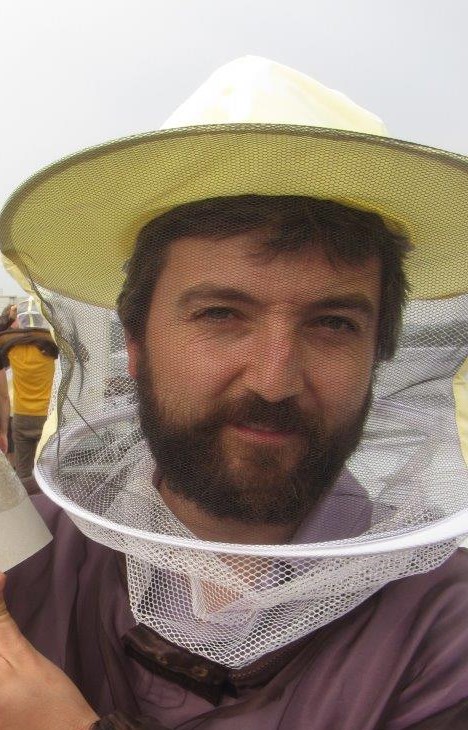Benjamin Dainat, PhD

Swiss Bee Research Centre, Agroscope, Switzerland
Brief Bio: Benjamin is a research scientist at the Swiss Bee Research Centre specialized on honey bee health, head of the national reference laboratory for bee disease and in charge of the breeding and selection section of the institute (www.apis.admin.ch). He studied biology, population genetics and ecology at the University of Montpellier in France, before achieving his Masters in Agronomy specialized in animal science at the University of Hohenheim in Germany; where he worked as scientific auxiliary at the Honey bee institute Landesanstalt für Bienenkunde Baden Württemberg. He earned his Phd from the University of Bern, Switzerland, performing his thesis at the Swiss Bee Research Centre. He did his Post doc at the USDA in Beltsville, Maryland USA before working as an extension specialist for few years at the Swiss Honey bee Health Extension service. He is also interested on the bee microbiome and together with a core team is coordinating the Beebiome consortium (https://wp.unil.ch/) that developed the beebiome dataportal www.beebiome.org.
Honeybee disease, breeding, microbiome, database
The BeeBiome Data Portal: a web-based resource to facilitate bee microbiome research. Challenges to get it done and long term maintainement
Co-authors on this work: Benjamin Dainat1, Valentine Rech de Laval1,2,3, Vincent Doublet4, Marc Robinson-Rechavi2,3, Philipp Engel5
1. Swiss Bee Research Centre, Agroscope, Schwarzenburgstr. 161, 3003 Bern, Switzerland
2. Department of Ecology and Evolution, University of Lausanne, 1015 Lausanne, Switzerland
3. SIB Swiss Institute of Bioinformatics, 1015 Lausanne, Switzerland
4. Institute of Evolutionary Ecology and Conservation Genomics, University of Ulm, Germany
5. Department of Fundamental Microbiology, University of Lausanne, 1015 Lausanne, Switzerland
Bees can be colonized by a large diversity of microbes, including beneficial gut symbionts and detrimental pathogens, with implications for bee health. Over the last few years, researchers around the world have collected a huge amount of sequencing (‘omics’) data about the composition, genomic content, and dynamics of bee-associated microbes. While each of these datasets by itself has provided important insights, the integration of such datasets provides an unprecedented opportunity to obtain a global picture of the microbes associated with bees and their link to bee health. The challenge of such approach is that datasets are stored in different repositories and are often not readily accessible, which hinders integrative analysis.
The BeeBiome consortium established a publicly available online resource, namely the BeeBiome data portal (www.beebiome.org), which provides an overview of and easy access to all currently available metagenomic datasets involving bee-associated microbes. Currently the data portal contains 11019 Sequence Read Archive (SRA) experiments for 140 Apoidae hosts. During this presentation challenges to finance, develop and maintain such a data portal for the bee research community will be presented.